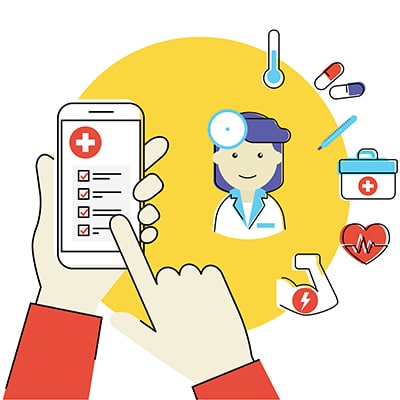 Pilot Schemes
Pilot Schemes
Many Practices have taken part in pilot schemes and for the last year we have been piloting the use of CANTAB Mobile which is a sensitive screening tool used to identify the earliest signs of clinically relevant memory impairment, indicative of Alzheimer’s. The assessment is carried out face to face with the patient using software on an iPad and only takes about 10 minutes to complete the memory and mood tests.
The latest pilot scheme we are taking part in, facilitated by our CCG, is teledermatology. A couple of years ago 18 GP Practices in the South Bristol Consortium (now the South Bristol Locality of Bristol Clinical Commissioning Group) carried out a pilot of teledermatology to assess the diagnosis, triage and effective care of dermatology. Feedback provided by GPs from the participating practices suggests that patient satisfaction with the service was high and Bristol Dermatology now provide a Teledermatology service to 80 GP practices in Bristol and North Somerset.
Virtual Reality Schemes
Dementia patients in Salford are currently taking part in an exciting 12 month virtual reality rehabilitation pilot, funded by NHS Salford CCG. Basic, a local brain injury charity has installed a virtual reality system which allows people to work through life-size interactive games and activities providing safe but physically challenging environments.
Telehealth – Modern medicine?
Telehealth is proving to be an effective delivery of health services and information via telecommunications technologies and the use of information and communication technology (ICT) in medicine has developed over the years. Modern medicine now incorporates email, electronic drug prescriptions, and home monitoring of conditions by patients. Clinical trials in the UK have shown it to reduce mortality by around 47%. However, the case for telehealth is still being actively debated with remote telemonitoring being associated with increased mortality in vulnerable patients. The increasing use of telehealth and telecare can help patients and people to receive effective care locally, or even whilst staying in their own homes.
Patient Choice
Technology is designed to give people more choice, rather than replace existing face to face services but there have been some significant medical advances in medical care as a result of this way of working. Telehealth can offer a connection with the patient wherever they are, not just their location, but where they are in their outlook when it comes to accessing treatment and keeping to their treatment plan.




